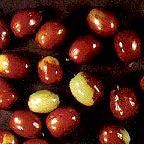Whether you accept it, avoid it or live somewhere in between, insurance coverage has become a defining issue for our profession. Patients increasingly expect to use their benefits, practitioners want to be compensated fairly for their time and expertise, and the system itself remains – at best – fragmented. The encouraging news is that coverage has expanded in meaningful ways. The challenging news is that reimbursement, across the board, remains inadequate.
Herbs & Botanicals
Jujube (da zao)
What is jujube? What is it used for?
Also known as the Chinese date or red date, the jujube is a type of tree native to China. It thrives best in warm, dry climates, but can withstand temperatures as low as – 20 degrees Fahrenheit. The tree can reach a height of more than 25 feet, with somewhat thing branches and glossy, green leaves.
The fruit of the jujube tree is typically reddish in color, and oval or globe-shaped. The fruit reaches up to 2 inches in diameter, with smooth skin and a single stone. The fruit is often dried and used in herbal remedies.
 In traditional Chinese medicine, jujube has a tonifying effect, and is used to tonify spleen and stomach qi. It calms the spirit and nourishes the blood. It also is used as a harmonizing herb in herbal formulas to make the ingredients taste better and function more smoothly.
In traditional Chinese medicine, jujube has a tonifying effect, and is used to tonify spleen and stomach qi. It calms the spirit and nourishes the blood. It also is used as a harmonizing herb in herbal formulas to make the ingredients taste better and function more smoothly.
How much jujube should I take?
The amount of jujube to be taken depends on the condition being treated. Generally, practitioners and herbalists recommend anywhere from 10-30 grams of dried jujube, taken either as a powder or boiled in water for oral use. Dried jujubes are occasionally candied and served as treats.
What forms of jujube are available?
Whole, dried jujubes are available at many Asian markets and some specialty health food stores. Jujube powders and extracts are also available.
When selecting jujubes, smaller dates are usually recommended. The skin of the date should be firm and deeply wrinkled.
What can happen if I take too much jujube? Are there any interactions I should be aware of? What precautions should I take?
As of this writing, there are no known drug interactions with jujube, or any reports of toxicity from excessive jujube consumption. However, it should not be used by patients who are suffering from abdominal cramps and bloating, excessive phlegm, or intestinal parasites. As always, make sure to consult with a licensed, qualified health care provider before taking jujube dates or any other herbal remedies or dietary supplements.
References
- Jujube. Fact Sheet HS-50, Horticultural Sciences Department, Florida Cooperative Extension Service, Institute of Food and Agricultural Sciences, University of Florida, April 1994.
- McGuffin M, et al. (eds.) American Herbal Products Association’s Botanical Safety Handbook. CRC Press, 1997, p. 125.
- Gruenwald J, et al. (eds.) PDR for Herbal Medicines, second edition. Montvale, NJ: Medical Economics Company, 2000, pp. 439-440.
- Reich L. Uncommon Fruits Worthy of Attention. Reading, MA: Addison-Wesley, 1991, pp. 139-146.
- Zong LX. Pocket Handbook of Chinese Herbal Medicine. Miami, FL: Waclion International, 2000.


